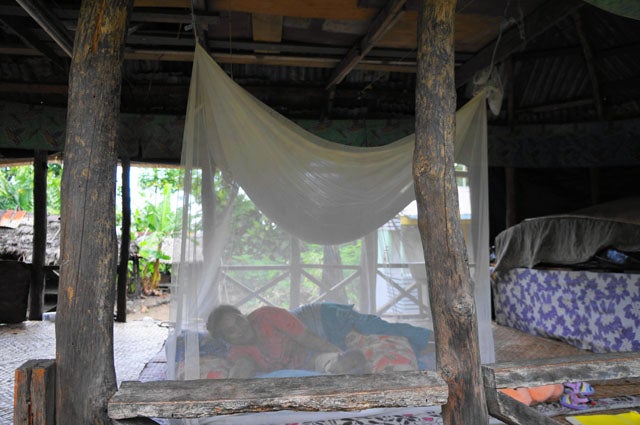Family planning is, very simply put, about living within ones' means: it is advisory that is offered with structural and personnel support, and whose benefits are, perhaps unfortunately, largely perceived as restricted to individuals and/or couples involved.
One uses the phrase "living within ones' means" in reference to allowing one as a parent or co-parent to provide the best one can for ones' children, both in terms of money and time. The quality of parental intervention cannot be emphasized enough. Planning a family according to the resources at our disposal can also mean children are able to realize their full potential, academically and professionally.
When one has the number of children one can afford, the ripple effect of such bedroom-level decision-making is eventually reflected at national level. Family planning is a significant player in population and development dynamics for to practice it is to plan for inclusive, equitable progress.
Population and development dynamics are vital considerations to national planning, regardless of sector. Family planning is thus a crucial determinant in a nation's progress, albeit the lack of recognition to this effect.
One of the first beneficiaries of family planning is a young woman, married or otherwise, a mother and/or a couple. To be pregnant when one is physically not ready can cause complications that can be fatal. A mother who has children too close to each other faces the same risk.
The health benefits of family planning reduces national fertility rates, and maternal and infant mortality rates, circumstances in which an increased life expectancy is inevitable. Over time, a nation's age structure where there are more working-age wage-earners than dependents will occur.
With less dependents, whether children or the elderly, there should be more disposable income for personal and lifestyle improvements; at a national level, this translates to increased disposable income as well for national development.
The demographic transition (decreasing birth and death rates) is therefore a critical time for inclusive development, from individual to national level. The fantastic economic growth by the Asian tigers (South Korea, Taiwan, Hong Kong and Singapore) was indeed on the back of a favorable demographic transition, complemented by an enabling environment by, for example, introducing appropriate policies.
Economic growth borne out of demographic transitions are referred to as the demographic dividend. Consistent investments in education and family planning paralleled with necessary sectoral reforms can be a tipping point for developing countries to achieve a demographic dividend.
A country's negligence of its sexual and reproductive health issues, whether its failure to curb sexually-transmitted infections which include HIV or failing to address unmet need (where women want to use contraceptives to plan their childbearing but cannot access them), directly impacts its economic output.
"Taking care of our countries' sexual and reproductive health and reproductive rights issues, which encompasses our family planning work is an investment in a nation's social and economic progress," United Nations Population Fund (UNFPA) Pacific Sub-Regional Office (PSRO) Director and Representative Dr Laurent Zessler said.
"Such a commitment however will require visionary leadership because it is a process which will take time for projected benefits to manifest."
It is not easy to define sexual and reproductive health and rights (SRHR). The propensity to be hung-up by words like sexual or reproductive as certain socialization may have inculcated, could be contributing to our inability to address this issue more effectively.
Sexual and reproductive health and rights is a phrase that has to be read and understood in totality, without prejudice or inhibitions that terms like sexual sometimes create; sexuality is central to any human being throughout his or her life.
The Programme of Action of the 1994 International Conference on Population and Development (ICPD) which was endorsed by more than 170 countries including Pacific island nations provides that sexual and reproductive health is a holistic, complete physical, mental and social well-being, with the ability to have a satisfying and safe sex life and the capability to reproduce, and the freedom to decide if, when and how often to do so.
Reproductive rights is about embracing relevant human rights already enshrined in Constitutions and recognized in national laws, for example, the basic right for all couples and individuals to decide freely and responsibly the number, spacing and timing of their children.
At a 2014 global meeting of faith-based organization leaders (which included Methodist Church of Fiji Wesley Division Superintendent Rev Jeremaia Waqainabete), participants released an outcome statement which began with: "We the people of faith call upon the United Nations systems and member states to ensure that sexual and reproductive health and reproductive rights be made central to the post-2015 sustainable development agenda".
And as we embark on the year that will be 2016, with the post-2015 agenda embodied in the Sustainable Development Goals or SDGs, a portion of their statement which addressed some of the practical aspects of what they were calling for, to ponder upon: "Not in our name should any mother die while giving birth. Not in our name should any girl, boy, woman or man be abused, violated or killed. Not in our name should a girl child be deprived of her education, be married, be harmed or abused. Not in our name should anyone be denied access to basic health care, nor should a child or adolescent be denied knowledge of and care for his/her body. Not in our name should any young person be denied their full human rights."
For a population to sustainably shoulder social and economic prerequisites for inclusive development and progress, its good health is critical and at the core of these considerations, is the role sexual and reproductive health and rights plays for effective and inclusive development and progress.
We can either take our lead from faith-based organizations global leaders in recognizing the critical importance of lived sexual and reproductive health and rights or continue to demonize a potential tipping point for (accelerated) progress: the ball is in our court.



